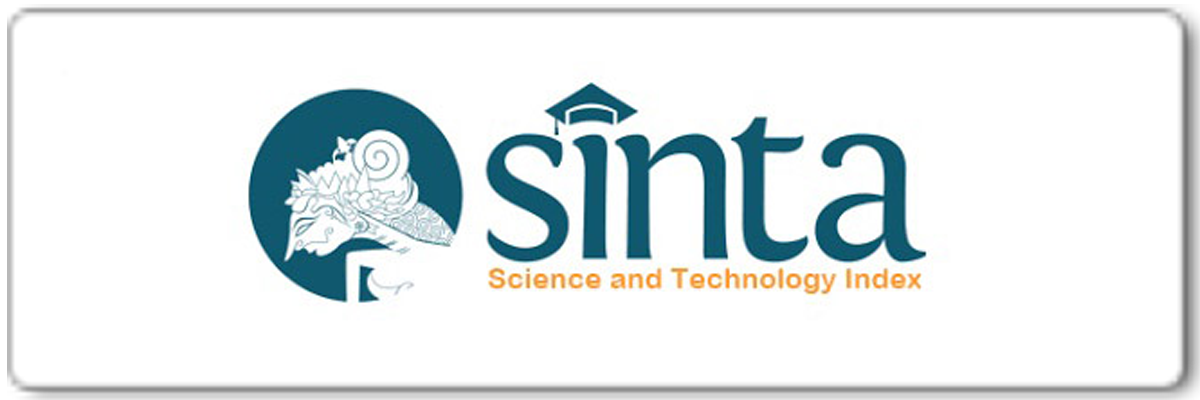ENHANCING INNOVATIVE PEDAGOGY IN TEACHING ENGLISH AS AN INTERNATIONAL LANGUAGE FOR INDONESIAN LEARNERS
Abstract
Full Text:
PDFReferences
Akker, J. van den, Bannan, B., Kelly, A. E., Nieveen, N., & Plomp, T. (2013). Educational Design Research (T. Plomp & N. Nieveen (eds.)). Netherlands Institute for Curriculum Development (SLO). https://doi.org/10.1007/978-1-4614-3185-5_11
Androutsos, A., & Brinia, V. (2019). Developing and piloting a pedagogy for teaching innovation, collaboration, and co-creation in secondary education based on design thinking, digital transformation, and entrepreneurship. Education Sciences, 9(2), 1–11. https://doi.org/10.3390/educsci9020113
Anil, B. (2017). Applying Innovative Teaching Methods in a Second Language Classroom. International Journal of Research in English Education, 2(2), 1–9. https://doi.org/10.18869/acadpub.ijree.2.2.1
Blannin, J., Mahat, M., Cleveland, B., Morris, J. E., Imms, W., Blannin, J., Mahat, M., & Cleveland, B. (2020). Teachers as Embedded Practitioner-Researchers in Innovative Learning Environments. 10, 99–116. https://doi.org/10.26529/cepsj.887
Canagarajah, A. S. (2013). Redefining proficiency in global English. In N. T. Zacharias & C. Manara (Eds.), Contextualizing the pedagogy of English as an international language: Issues and tensions, Cambridge Scholars. Cambridge Scholars Publishing.
Floris, F. D., & Renandya, W. A. (2020). Promoting the value of non-native english-speaking teachers. Pasaa, 59(June), 1–19.
Germain-Rutherford, A. (2021). Action-oriented approaches: being at the heart of the action. In T. Beaven & F. Rosell-Aguilar (Eds.), Innovative language pedagogy report. Research-publishing.net. https://doi.org/10.14705/rpnet.2021.50.9782490057863
Honna, N., & Takeshita, Y. . (2014). English as an international language and three challenging issues in English language teaching in Japan. In R. Marlina & R. Giri (Eds.), The Pedagogy of English as an International Language: Perspectives from Scholars, Teachers, and Students (pp. 65–77). Springer.
Kamil, A. K. (2019). The effect of an innovative teaching technique on the success and attitudes of sixth grade English language students. Educational Research and Reviews, 14(7), 254–261. https://doi.org/10.5897/err2018.3652
Kinshuk, Suhonen, J., Sutinen, E., & Goh, T. (2019). Innovative Learning and Innovative Learning Spaces. Asian Journal of Distance Learning, 1(1), 60–68. http://www.ycmou.ac.in/pluginfile.php/136/mod_data/content/18366/2009-AJDE.pdf
Lee, J. S., & Drajati, N. A. (2019). English as an international language beyond the ELT classroom. ELT Journal, 73(October), 419–427. https://doi.org/10.1093/elt/ccz018
Lock, J., Kim, B., Koh, K., & Wilcox, G. (2018). Navigating the Tensions of Innovative Assessment and Pedagogy in Higher Education. The Canadian Journal for the Scholarship of Teaching and Learning, 9(1). https://doi.org/10.5206/cjsotl-rcacea.2018.1.8
Looney, J. W. (2009). Assessment And Innovation In Education. OECD Education Working Papers, 24(24), 62. https://doi.org/10.1787/222814543073
Madya, S. (2007). Curriculum innovations in Indonesia and the strategies to implement them. In ELT Curriculum Innovation and Implementation in Asia (Vol. 2, Issue 1997, pp. 1–38).
Marlina, R. (2014). The pedagogy of English as an international language (EIL): more reflections and dialogues. In R. Marlina & R. Giri (Eds.), The Pedagogy of English as an International Language: Perspectives from Scholars, Teachers, and Students (pp. 1–19). Springer International Publishing AG.
McKay. SL. (2002). Teaching English as an International Language: Rethinking Goals and Approaches. Oxford University Press.
McKay, S. L. (2003). Toward an appropriate EIL pedagogy: Re-examining common ELT assumptions. International Journal of Applied Linguistics (United Kingdom), 13(1), 1–22. https://doi.org/10.1111/1473-4192.00035
Nugent, K., & Catalano, T. (2015). Critical cultural awareness in the foreign language classroom. NECTFL Review, 1, 15–30. http://digitalcommons.unl.edu/teachlearnfacpubhttp://digitalcommons.unl.edu/teachlearnfacpub/194
Orafi, S. M. S. (2013). Effective Factors in the Implementation 0f ELT Curriculum Innovations. Scientific Research Journal, I(V), 14–21.
Rai, L., & Deng, C. (2016). Glocalisation and English language education in Chinese context. 7724(March). https://doi.org/10.1080/14767724.2014.980226
Renandya, W. A. (2016). Teacher Roles in EIL. The European Journal of Applied Linguistics and TEFL, 65–80.
Rivers, D. J. (2011). Strategies and struggles in the elt classroom: Language policy, learner autonomy, and innovative practice. Language Awareness, 20(1), 31–43. https://doi.org/10.1080/09658416.2010.537343
Sharifian, F. (2009). English as an international language: an overview. In F. Sharifian (Ed.), English as an International Language: Perspectives and Pedagogical Issues (pp. 1–18). Multilingual Matters.
Simpson, Ç. S. (Ed.). (2014). Innovations in English Language Teaching and Learning : The Turkish Perspective Edited by Çağla Sarp Simpson. Crowd Source ELT Permission.
Tan, K. H., Farashaiyan, A., Sahragard, R., & Faryabi, F. (2020). Implications of English as an international language for language pedagogy. International Journal of Higher Education, 19(1), 22–31. https://doi.org/10.5430/ijhe.v9n1p22
Wahyuni, S. (2016). Curriculum Development in Indonesian Context the Historical Perspectives and the Implementation. Universum, 10(1), 73–78. https://doi.org/10.30762/universum.v10i1.225
Xu, Z. (2017). Developing Metacultural Writing Competence for Online Intercultural Communication: Implications for English Language Teaching. Tesl-Ej, 20(4), 1–9. http://ezproxy.lib.utexas.edu/login?url=http://search.ebscohost.com/login.aspx?direct=true&db=eue&AN=121958223&site=ehost-live
Xu, Z. (2018). Exploring English as an International Language – Curriculum, Materials and Pedagogical Strategies. RELC Journal, 49(1), 102–118. https://doi.org/10.1177/0033688217753848
Article Metrics
Abstract has been read : 1592 timesPDF file viewed/downloaded: 0 times
DOI: http://doi.org/10.25273/etj.v9i2.10117
Refbacks
- There are currently no refbacks.
Copyright (c) 2021 Moh. Yamin, Oikurema Purwati
English Teaching Journal: A Journal of English Literature, Language and Education indexed by:
This work is licensed under a Creative Commons Attribution-NonCommercial-ShareAlike 4.0 International License.







